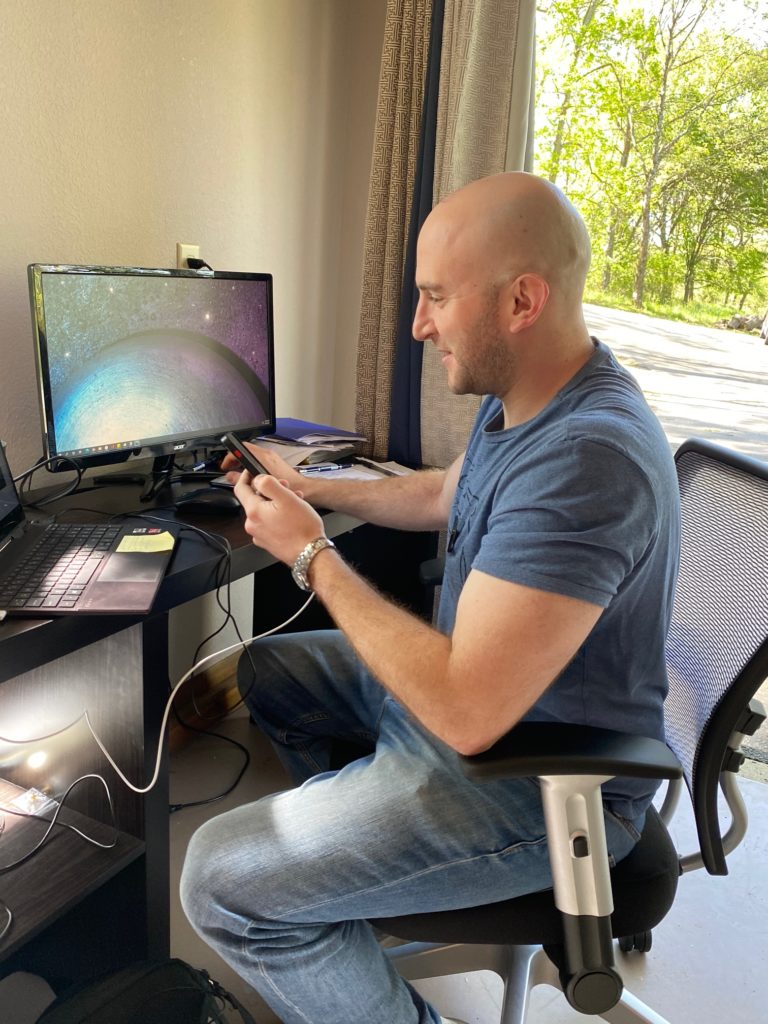May 6th, 2021
If you are considering buying a vacation rental property, the very first step is picking a good market to get started. “Where am I going to do this?” is a crucial piece of your real estate investment decision. People will only really vacation to certain areas of the country that have a tourism draw, so an investor should consider that and get crystal clear on your intended use. The main element that differentiates a “vacation rental” from a “vacation home” is that one will be generating income, and the other won’t. As a former consultant of thousands of vacation rental buyers nationwide, I’ve discovered the same fundamentals apply wherever you end up deciding to purchase your property. You can distill the market selection process down into 3 main elements when considering which market to buy a vacation rental in:
- Occupancy Curve
- Regulations
- Home Prices
Occupancy curve In the vacation rental industry, the term occupancy rate is used to indicate the number of days booked out of the total available days in a certain period. Vacation rentals are going to have a certain occupancy rate which is essentially the portion of days in the course of that period that get booked. (Vacancy rates generally aren’t used, unlike the hotel industry or long term rentals.) Each month will likely be different depending on a variety of different factors. This is where the “curve” comes from in the term “occupancy curve”. Some markets are flat and will have steady tourism year round, some will spike in summer, and have zero bookings in winter, spring, and fall. Your vacation rental property is going to have a certain number of nights available a year (365) to book out, and each month will represent a different degree of demand for vacation rentals in that particular area.
In order for you to maximize your rental income, you need to have the ability to book as many nights as possible, and having more months that have strong occupancy demand is going to be better than only having a 2-3 month peak season and having no demand the rest of the year. When considering a market to purchase a vacation rental, ask yourself how many people travel to this particular area throughout the course of the year? Do people flock to southern Florida in the winter? Yes! Do people flock to the upper midwest during winter? Not so much. What about Phoenix in the middle of the summer when it’s 115 degrees out and you could bake some cookies in your parked car with the windows up? No way. If you’re considering a condo in a ski town, you have to uncover if there is anything to attract someone to stay there if there isn’t snow. The same goes for beaches and lakes; are there other activities for guests when it isn’t warm? These considerations are all so fundamental to picking a good market in which to invest your money.
To analyze your potential vacation rental market’s curve, you need to fully understand who is visiting when. For example, is the market in a family-friendly destination (like Disney World) where there will be activities offered when kids have time off from school and then slows down when kids go back to school? Is it a summer lake destination for boating, and in the winter there is no draw? The month over month occupancy rates are always going to be different based on the geography, weather, local activities, school year, holidays, and other factors that bring people or push people away from a certain area. Finding out the average annual peak and off-peak nights booked will help you when comparing vacation destinations. In fact, in some areas, peak demand months show 90% or more occupancy! That isn’t something that happens every single month of the year though, so make sure those peak season times are providing the funds to carry your property through the slower times of year.
Understand that if historically the off season is slow, expect that. The best markets have a strong tourism draw for at least 9-10 months a year where the rental income is spread out through those months. This will help with progressively getting rental income throughout the course of the year.
Regulations Regulations and compliance are both topics that bore the living daylights out of most regular folks. If you ever find yourself unable to fall asleep at night just pull up your local municipal zoning ordinances online and start reading and you’ll be dozing off before you get to page 2. With that being said, you don’t want to fall asleep when it comes to analyzing the regulatory environment for the area you’re looking to buy a vacation rental. One wrong misstep here and it could jeopardize the entire business.
For example, as of March 2021 any violation of the short-term rental ordinance for an illegal short term rental in Honolulu, Hawaii is punishable by an initial fine of $1,000 and a fine of $5,000 per day for each day violation persists…which escalates to $10,000 per day for each day the violation persists for recurring violators. Hopefully that got your attention! I use that example as an extreme case of how important regulatory awareness is when it comes to vacation rental market selection.
Arguably the biggest consideration for where to NOT purchase a vacation rental is one where the regulatory environment for the particular city, county, municipality does not allow vacation rentals. Unfortunately there is not a nationwide database of vacation rental regulations broken down by different areas of the country because there are so many nuances and rules, and the rules are constantly in flux. In addition, certain HOAs/COAs have rules governing vacation rentals. Having a fundamental understanding of the market’s regulatory environment is essential before entering the space with plans for vacation rental investing. Regulations can come in the form of zoning, taxes, number of days that can be booked, licensing/permitting and other requirements.
Certain areas of the country are pretty much a minefield when it comes to regulations. The first step to navigate the regulatory risk is to beware of larger cities in general because where there are more people the economy relies less and less on tourism and shifts more to making housing affordable a priority. A larger population that needs affordable houses = less need for investors to snatch up properties for vacation renting. Portland, Las Vegas, San Francisco, Austin, New York City, Chicago, Denver, Los Angeles – every one of these places makes it very tough (or basically impossible) to have a vacation rental property. Secondly, It’s also worth looking at the political landscape when it comes to favoring tenant rights or owner rights for property rights. Areas that are reliant on tourism and that currently have a robust vacation rental industry should be positive indicators for the due diligence process of vacation rental purchasing. Finally, beware of the NIMBY’s (Not In My BackYard, people). If you are in an area that requires you to get a permit or have your property rezoned for vacation rental use, are your neighbors doing the same and likely to be on your side? Or are they going to be upset about you bringing in the ‘riffraff renters’ that are going to disturb their peace? This one is hard to feel out in residential areas, but logically if your neighbors are also operating vacation rentals legally, that’s more reassuring that they’ll be aligned with your intended use than someone who isn’t doing the same.
The investment in knowledge for an area’s regulatory environment when it comes to purchasing a vacation rental is worth the time and effort to research at the very beginning to prevent headache and hardship later on.
Home Prices The last important element in analyzing a market for a potential investment is the market real estate prices for vacation rentals. When looking at any type of investment the Return on Investment (ROI) ratio between net income and investment is one of the most crucial considerations.
For example, If Vacation Rental A is a 2BR condo located in a high end ski market and costs $500,000 to acquire and makes $30,000 per year in rental income, you’re getting about 5% income relative to your investment cost. This rough calculation hasn’t even included expenses such as cleaning fees, HOA fees, utilities, & maintenance… let alone debt servicing if you have a loan on the property! This example property is most likely not going to cash flow.
Vacation Rental B is a 3BR condo located in a lake area in the central US, costs $200,000 and also makes $30,000 per year. That is a 15% return and has a much higher chance of being a cash flow property. The only number that changed in those two examples was the cost of the real estate purchase price. Different markets across the country will always have different prices for real estate. California, New York, and Hawaii are all very expensive places. Indiana, Ohio, and Missouri are generally much more affordable places. If you want to buy an investment grade property, you should be buying in a market where the prices for real estate are the most affordable in relation to the income potential. There are different rates vacation rentals will get across the country for the same type of property, i.e., a 5 bedroom house in Kissimmee, Florida is going to have a different nightly rate throughout the course of a year than a 5 bedroom house in The Hamptons.
Always factor what the cost of your vacation rental is relative to the rates that you can charge for the property. If your goal is to offset costs or break even with your vacation rental, you have a wider range of market areas to choose from. If you want an investment-grade property that will cash flow and get a high return on investment, you need to pick a market area that fundamentally has more affordable real estate in relation to the nightly rates and total overall income.
Occupancy demand, regulations and home prices are the key fundamentals for analyzing different places to purchase a nightly rental. None of them should be ignored and every market will have a different environment. When researching different areas, try to find a real estate agent that has thorough knowledge of these three fundamental elements to help pick the right place to start your vacation rental journey.


